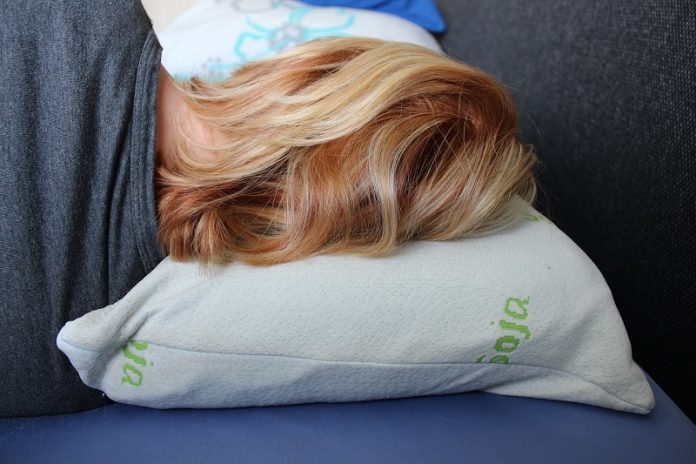
In a study from Hyogo Medical University, scientists found that poor sleep quality – including moving around too much or having sleep apnea – may increase the risk of a future heart problem.
That problem is called left ventricular diastolic dysfunction, a precursor to heart failure. But not getting enough sleep did not appear to increase that risk.
Heart failure with preserved ejection fraction (HFpEF) – a type of heart failure that occurs when the left side of the heart muscle stiffens and can’t properly pump blood to the rest of the body – makes up 60% of the 37 million cases of heart failure worldwide.
Prior research has shown sleep problems, including sleep apnea, are associated with an increased rate of heart failure.
In the current study, researchers analyzed sleep and heart health data for 452 adults, who were an average of 59 years old, over a nearly three-year period.
They measured sleep apnea, sleep duration, and how much a person moved while they slept – an indicator that sleep was restless.
People with moderate to severe sleep apnea, or who moved around a lot at night – but not those who didn’t get enough sleep – were more likely to develop left ventricular diastolic dysfunction.
Among people with moderate to severe sleep apnea, about 28% later developed left ventricular diastolic dysfunction, compared with about 11% of those without sleep apnea.
Among those who moved around a lot while they slept, 21% later developed the heart condition, compared with 8% of those who moved less.
A great deal is known about sleep apnea, a common sleep disorder, and how to treat it.
Treatment options include continuous positive airway pressure machines, sleep positional therapy, oral devices worn during sleep, weight loss, and surgery.
But less is known about how to address excessive movement during sleep. The team says many things might cause a person to move during sleep, including restless leg syndrome and a lack of deep sleep.
Some ways to improve sleep quality include getting sufficient exercise during the day and sleeping in a dark environment with no exposure to blue light from smartphones and other electronic devices.
If you care about sleep quality, please read studies about herbs that could help you sleep well at night, and these drugs could lower the severity of sleep apnea by one-third.
For more information about health, please see recent studies about why exercise may help treat Parkinson’s disease, and results showing these heartburn drugs may increase the risk of dementia.
The study was conducted by Dr. Hidenori Koyama et al and published in the Journal of the American Heart Association.
Copyright © 2022 Knowridge Science Report. All rights reserved.



